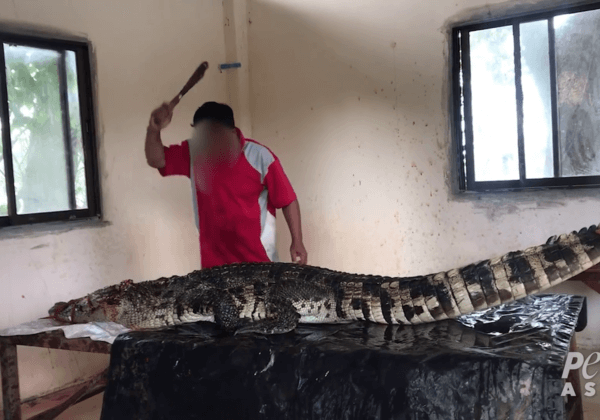10 Reasons to Trade in Your Wool Coat
Depending on where you live, it’s either already cold or going to be soon. Before you buy a new wool coat or sweater, check out these reasons to cut the wool from your closet.
1. Keith Kendrick, a professor of physics at London’s Gresham College, discovered that sheep recognize the faces of at least 50 other sheep and can remember 50 images for up to two years.
2. Professor John Webster of the University of Bristol found that sheep visibly express emotions. When they experience stress or isolation, they show signs of depression similar to those that humans show by hanging their heads and avoiding positive actions.
3. Sheep will wag their tails when they are stroked, just like dogs. They affectionately nuzzle people in order to get their attention.
4. Sheep experience fear when they are separated from their social groups or approached by strangers. Sheep’s heart rates have been found to increase by 20 beats per minute (bpm) when they’re unable to see any members of their flock and by 84 bpm when approached by a man and a dog.
5. Most of the world’s Merino wool comes from Australia, where the most commonly raised sheep are merinos. Merinos are specifically bred to have wrinkly skin so that they can produce more wool per animal. This unnatural overload causes many sheep to collapse and even die of heat exhaustion during hot months.
6. The wrinkles in sheep’s skin collect urine and moisture. Flies are attracted to the moisture and lay their eggs in the folds of skin. The hatched maggots can eat the sheep alive.
7. When sheep are still lambs, they’re subjected to mulesing, a cruel mutilation in which farmers cut huge chunks of skin from the animals’ backsides or attach vise-like clamps to their flesh until it dies and sloughs off. This is often done without giving the animals any painkillers.
8. Mulesing is a crude attempt to create smoother skin that won’t collect moisture, but the exposed, bloody wounds often become infected or flystruck. Many sheep who have undergone the mulesing mutilation still suffer slow, agonizing deaths from flystrike.
9. Sheep can be spared maggot infestation through humane methods, such as diet regulation and spray washing, and by simply breeding types of sheep who are better suited for the climate.
10. Each year, millions of sheep who have begun to produce less wool are loaded onto extremely crowded, multitiered cargo ships and sent on terrifying journeys to the Middle East or North Africa, where they will be slaughtered. Many of the animals will have their throats cut while they are still conscious.
Ready to give up the wool for good? There are fashionable, durable, and warm alternatives to wool available virtually everywhere clothes are sold.
Posted by Jason Baker










